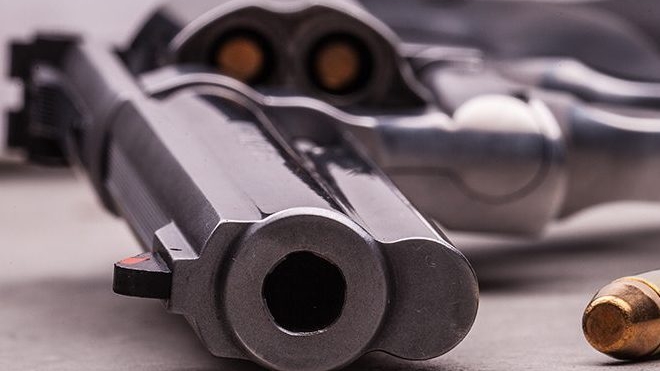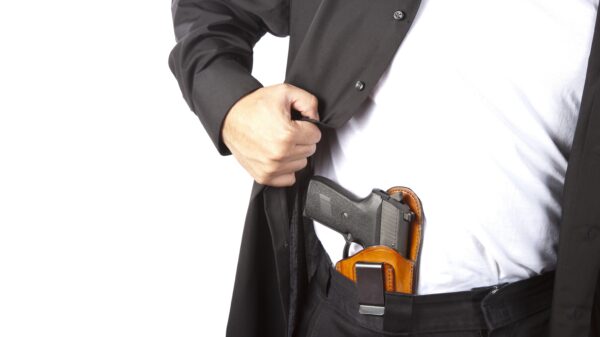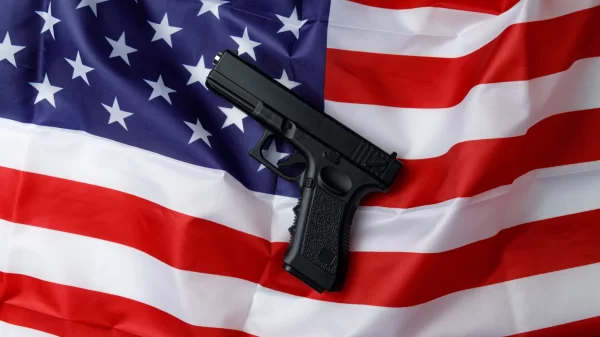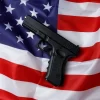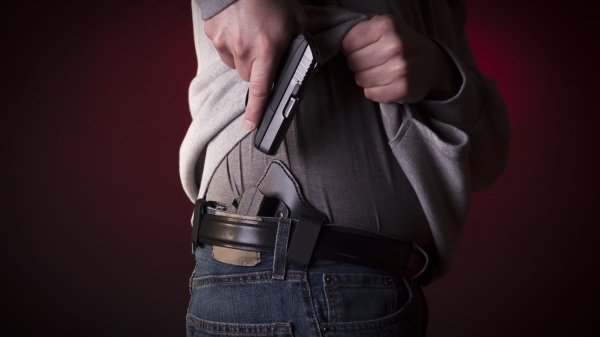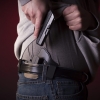By Lee Hedgepeth
Alabama Political Reporter
Kansas Attorney General Derek Schmidt announced this week that concealed carry gun permits issued in his state will now be recognized in Alabama. In effect, this will mean that any Kansas concealed carry permit holder traveling or visiting Alabama will now be able to legally carry a hidden weapon.
Starting with the passage of Alabama’s Firearms and Weapons Law, also known as the Gun Reciprocity Law in 2001, our state began the process of making agreements with other states with similar gun laws to reciprocally recognize concealed carry permits.
Permits issued in Kansas are also recognized in thirty four other states. With this week’s announcement, Kansas became the twenty fifth state whose concealed carry permits are recognized by the state of Alabama.
Alabama also recognizes conceal carry permits issued by AK, AZ, AR, CO, FL, GA, ID, IN, IA, KY, LA, MI, MS, MO, NW, NC, ND, OK, SD, TN, TX, UT, and WY.
Our state does not, however, recognize permits from the following states: CA, CT, DE, HI, IL, MA, MD, ME, MN, MO, NB, NV, NJ, NM, NY, OH, OR, PA, RI, SC, VT, VA, WA, WV, WI.
According to the website for the State of Alabama’s office of the Attorney General, there are thirteen “frequent reasons,” which are listed below, as to why other states have decided that weapons permits issued in Alabama are not restrictive enough and therefore not safe enough for their states, which are listed below.
1. Has a statutory requirement of a signed agreement to establish reciprocal recognition of concealed handgun licenses. 2. Require by statute that an NCIC background check be done on all applicants for concealed handgun licenses. 3. Require fingerprint card to do criminal background check on applicant. 4. Require minimum age of applicant for concealed handgun license to be twenty-one (21) years of age. 5. Require a centralized, one phone number or on-line database which can give 24/7 verification and status of concealed handgun licenses in Alabama prior to recognizing Alabama concealed handgun licenses. 6. They are a “shall issue” state. If an applicant meets the statutory requirements for issue of a concealed handgun license, the state “shall issue” him or her a license. Alabama is a “may issue” state if the Sheriff determines a person has a “proper reason for carrying a pistol, and that he is a suitable person to be so licensed,” the Sheriff, “may issue” the person a license. Ala. Code Sec. 13A-11-75. They will not recognize handgun licenses unless they are issued by a state that is also a “shall issue” state. 7. Training requirements or proficiency requirements. 5-, 8-, or 16-hour training requirement, and some states require passing a handgun proficiency test. 8. Permit must contain biographical information and a photograph of the permittee.
9. History of violence is a restricting factor.
10. Applicants must meet all requirements of 18 USC 922(g).
18 USC 922(g) is a section of the U.S. Code which states it is unlawful for anyone who is convicted of a felony, who is a fugitive from justice, who is an unlawful user of controlled dangerous substances, who has been adjudicated mentally defective or been committed to a mental institution, who is an illegal alien; who was dishonorably discharged from the Armed Forces, who has renounced his citizenship, or who is under restrictions of a protective order to own or possess a firearm.
11. Applicants must make a sworn application. 12. Prohibit convicted felons from obtaining a concealed handgun license. 13. Require a mental health background check.
Although the above list of restrictions not in place in Alabama may seem exhaustive, there are some regulations on concealed weapons that do apply in Alabama. AG Strange’s website lists mainly three: that a concealed weapon must be unloaded, that the weapon cannot be transported while it is accessible to the occupants of the vehicle, and that if there are no lockable or closable compartments in a vehicle transporting the weapon, and that it must be in a locked box or safe.
When contacted, Luther Strange also clarified that the decision to now recognize permits issued by Kansas is based in part on the recent passage of another pro-gun, NRA supported Alabama law that aligns Alabama’s gun laws more closely with those of the Sunflower State.
According to the Alabama Sheriff’s Association, about 350,000 Alabamians are licensed to carry concealed weapons, about 7.3 percent of the population. Alabama’s decision to recognize Kansas permits brings into the fold another 71,000 concealed carriers, in addition to those of the other 24 recognized states.








































